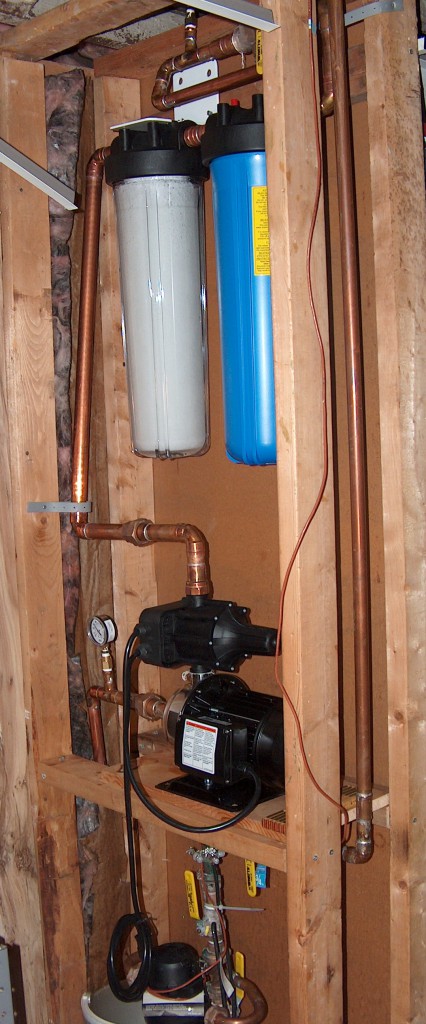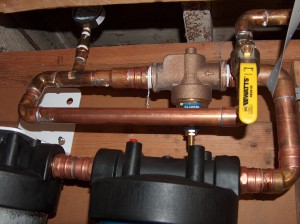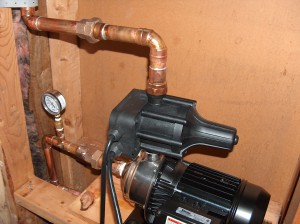Water in Chicago comes straight from Lake Michigan, and is pretty decent quality in general. Most houses do not have water meters, which I suspect leads to very little incentive to conserve water. During the summer months, especially during lawn-watering season, it’s not unusual for our water to dwindle to a mere trickle. A few spot measurements indicate that our water pressure is normally about 30 psi, but can drop to 15 psi or less at points during the summer. In practical terms, this means that the shower stops if somebody turns on the kitchen faucet.
Meanwhile, my wife requested that I put in a system to remove chlorine from the water, for various health and hairstyle reasons. Even with large, high-flow filters, this necessarily results in a pressure drop through the filters.
After a number of calculations, and toying with ideas such as placing the hose outlets upstream from the system so as to not bother filtering water that goes on the lawn (a bad idea for an active system, which could potentially draw water into the house from the hoses) I settled on a design which has worked beautifully for months.
In order from the inlet, the system consists of:
- A water meter
- A bypass system (for maintenance)
- A pressure gauge
- A booster pump
- A sediment filter
- A carbon block filter
- A pressure reduction valve
- Another pressure gauge
The order is important — placing the booster pump after the filters, for example, would mean that the pressure going into the filters could be as low as 15 psi, and therefore as low as 5 psi before the pump. That’s too low — the pump would refuse to operate — or worse, become damaged. Water can be pushed, but it can’t be pulled.
The pump adds 40 psi, so that if intake water pressure is 30 psi, the pressure at the first filter should be about 70 psi. I’ve never measured intake pressure above 35 psi, and 75 psi is still comfortably below the filter housing maximum recommended pressure. The pressure reduction valve ensures that intake pressure to the house doesn’t exceed 50 psi. Measurements demonstrate that this is remarkably consistent, regardless of variations in intake pressure.
After all this, water in the house tastes pure and clean, the pressure is consistent and wonderful (we can water the plants, run the dishwasher and take showers at the same time.)
After all this work, the main thing I’d do differently is consider smaller filters. The 4.5″ x 20″ filters are huge. Each one holds a bit over 5 gallons, which is about 40 pounds of water. I was primarily concerned with water flow and pressure drop, and bigger filters are better, but I doubt the difference would be noticeable for say, a 2.5″x 20″ filter, which would be a lot easier to change and handle.




